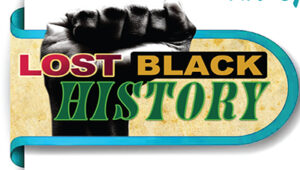One of the results of the northern “Great Migration” was the development of the “New Negro.” When World War One ended it brought home thousands of Black men who had more aplomb than when they left. According to the National Archives, more than 380,000 Black men served in the Army during the war. These Black men experienced respect, class and the novelty of being treated like an equal. The 1920’s saw the resentment of being treated like 3/5ths of man begin to be displayed. Subtle commentary first began in our Black arts and culture. Harlem was the mecca for this Belle Epoque, known as the “Harlem Renaissance” (Renaissance)
A fervent symbiotic relationship began between the Renaissance and the “New Negro.” Post Civil War Blacks had largely aligned with the message of Booker T Washington: “Go along to Get along.” In the ‘20s and ‘30s America witnessed an amalgamation of the Renaissance’s cultural instruments with the writings and cry of the more independent accolytes of Booker T. Washington. These tools merged to create the “New Negro Movement.” It promoted a sense of racial pride, cultural self-expression, economic independence, and progressive politics. An editorial in the Black newspaper the Cleveland Gazette wrote, “New Negroes were seen invariably as men and women (but mostly men) of middle-class orientation who often demanded their legal rights as citizens, but almost always wanted to craft new images that would subvert and challenge old stereotypes.”
Writer Dr. Alain Locke is generally given credit for the “New Negro” moniker. Dr. Locke was a distinguished academic—the first African American Rhodes Scholar, he obtained a Ph.D. in philosophy from Harvard—who taught at Howard University for 35 years. In 1925, he published the article “Enter the New Negro” and defined the nascent term, as “augury of a new democracy in American culture.” His article skillfully described the low esteem Blacks had of their racial values due to the long-term repression of the White society. He pointed out “New Negros” aspired to combat stereotypes, awaken Black national consciousness and pride, as well as improve their social status as Americans.
Dr. Locke wrote, “The migrant masses, shifting from countryside to city, hurdle several generations of experience at a leap, but more important, the same thing happens spiritually in the life-attitudes and self-expression of the Young Negro, in his poetry, his art, his education and his new outlook, with the additional advantage, of course, of the poise and greater certainty of knowing what it is all about. From this comes the promise and warrant of a new leadership.” To learn more read, Color by Countee Cullen.
